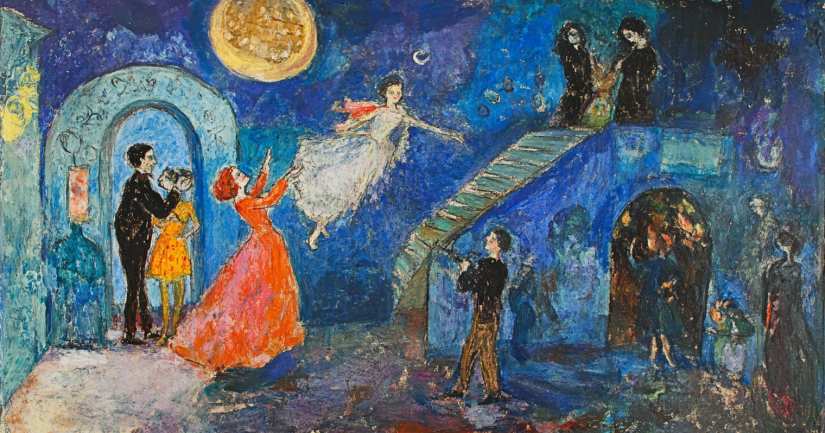
Dive into the artful dialogue of Twelfth Night Act 2 Scene 4 Quiz, where love and wit take center stage. This scene, rich with emotion and wit, invites you to delve into the heart of the play. Here, Duke Orsino ponders the nature of love, revealing his depth and vulnerability. Viola, disguised as Cesario, listens, her own feelings tangled and unspoken. This moment captures the themes of love, identity, and disguise, weaving them into a tapestry of delightful confusion.
By taking this quiz, you will deepen your understanding of these intricate themes. You will grasp the subtleties of Shakespeare’s language and uncover the motivations of his characters. Each question challenges you to think critically and reflect on the nuances of the dialogue. You will experience the humor and heartache that define this timeless work.
The love drama is intensifying, but there’s still plenty of comedy to enjoy! Keep going with Twelfth Night Act 2 Scene 5 Quiz to see how Malvolio’s fate takes a hilarious turn. Want to review all the key moments from this act? Take the Twelfth Night Act 2 Quiz. And if you’re feeling confident, why not challenge yourself with the Twelfth Night Full Book Quiz?
Dive in and see how well you know the scene’s twists and turns. Let the magic of Twelfth Night captivate you as you unravel its mysteries. Are you ready to test your knowledge and discover more about this classic play? Twelfth Night Quizzes: Love, disguise, and trickery …
What Happened – Twelfth Night Act 2 Scene 4 Quiz
In Act 2, Scene 4 of Twelfth Night, Duke Orsino is in his palace. He listens to music and talks about love. Orsino asks for the musician Feste to sing a song. Feste sings a sad love song. Orsino and his servant, Curio, discuss the song’s meaning.
Orsino then talks to Cesario, who is actually Viola in disguise. He shares his thoughts on love. Orsino believes that men love more deeply than women. Viola disagrees but does not reveal her true identity. She hints that she loves someone like Orsino, but he does not understand.
Orsino sends Cesario to visit Lady Olivia again. He wants Cesario to deliver another message of love to her. Cesario is hesitant but agrees to go. Before Cesario leaves, Orsino gives more advice about how to speak to Olivia.
Orsino talks about how men should not marry older women. He believes that women lose beauty as they age. Viola listens and gives her own thoughts on love and age.
The scene ends with Cesario preparing to visit Olivia. Orsino hopes that Olivia will finally return his love. Viola, still in disguise, has her own feelings for Orsino. The scene shows the complicated nature of love and disguise in the play.
Twelfth Night Act 2 Scene 4 – Quotes
- “She never told her love, But let concealment, like a worm i’ the bud, Feed on her damask cheek.” – Viola, ‘Viola speaks about unspoken love, hinting at her own feelings for Orsino.’
“Our fancies are more giddy and unfirm, More longing, wavering, sooner lost and worn, Than women’s are.” – Orsino, ‘Orsino reflects on the fickle nature of men’s desires compared to women’s constancy.’
“Then let thy love be younger than thyself, Or thy affection cannot hold the bent.” – Orsino, ‘Advises Viola (disguised as Cesario) on the dynamics of love and age.’
“For women are as roses, whose fair flower Being once displayed, doth fall that very hour.” – Orsino, ‘Compares women’s beauty and fleeting nature to roses.’
“Alas, their love may be called appetite— No motion of the liver, but the palate— that suffer surfeit, cloyment, and revolt.” – Orsino, ‘Describes how men’s love is often based on appetite rather than true emotion.’
“Too well what love women to men may owe: In faith, they are as true of heart as we.” – Viola, ‘Challenges Orsino’s view by asserting women’s capacity for deep love.’
“Come away, come away, death, And in sad cypress let me be laid.” – Feste, ‘Sings a melancholic song reflecting themes of unrequited love and mortality.’
Twelfth Night Act 2 Scene 4 – FAQ
Act 2 Scene 4 explores love’s complexity and ambiguity. Characters discuss various forms and perceptions of love, highlighting its multifaceted nature. The scene emphasizes the pain, confusion, and transformative effects that often accompany love.
Music symbolizes love’s emotional depth and volatility. Orsino’s request for music reflects his melancholic mood and desire for love’s soothing yet stirring power. The scene begins with Orsino asking for a song that mirrors his emotional turmoil, using music to express his intense and fluid feelings.
Viola’s disguise as Cesario adds dramatic irony and complexity. It allows her to have intimate conversations with Orsino, offering insights into his character while hiding her own feelings for him. This disguise creates tension, as Viola manages her role while secretly loving Orsino, who is unaware of her true identity.
Orsino sees love as grand and consuming, often idealizing it. He indulges in the drama of his emotions, viewing love as an overpowering force. Viola, on the other hand, has a more grounded and realistic understanding. She sees love as complex and contradictory, recognizing it as a profound yet imperfect emotion requiring patience and empathy.
Feste, the fool, offers a unique perspective on love and life with his wit and wisdom. His song and interactions highlight the folly and fragility of human emotions. Feste’s presence underscores the play’s exploration of love’s irrationality, providing comic relief and insight into the romantic entanglements.
